Did first female-majority legislature in US make a difference?
- Published
The BBC spoke to Nevada's assembly floor leader in 2019
Nevada made history when it became the first state in the US with a female-majority legislature, with women holding 51% of the seats, in December 2018.
The moment was hailed as a great victory for women - but did having more women in power make a practical difference?
Here are five areas Nevada legislated on in 2019 - which commentators say were helped by the fact there were more women at the table.
1. Compensating firefighters who develop breast, uterine and ovarian cancer
Firefighters can be exposed to toxic contaminants and carcinogens at work - and studies like this one from the CDC show that firefighters have higher rates of cancer, external compared to the general population.
Nevada's law provides compensation for firefighters who develop cancers as an occupational disease - but certain types of cancer - including breast, womb and ovarian cancer - were not covered until recently.
"It had never been something that people thought of - but we have a lot of women serving as firefighters now," says Nicole Cannizzaro, the Senate majority leader. "They were exposed to the same types of chemicals - often cancerous - but were not covered for the same type of work as their [male] counterparts."
The gap in the law had very real consequences for Las Vegas firefighter Robin Lawson, who was diagnosed with breast cancer twice - first in 1997, and again in 2005.
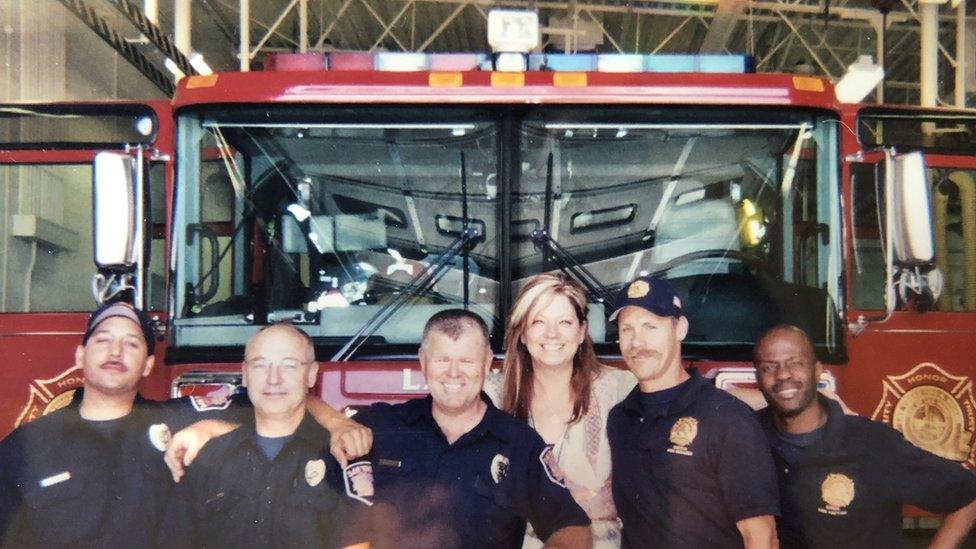
Robin Lawson (third from right) worked as a firefighter for 14 years
When the cancer returned, her doctor believed it was due to her work as a firefighter. However, the government initially denied her workers' compensation claim - saying she could not prove there was a link - and it took a court battle of almost six years before Nevada's supreme court sided with her.
"It was very hard physically and emotionally," Ms Lawson says. "I didn't do it for the money - I did it for the principle, that I had worked my butt off to get to where I was at, especially as a female firefighter."
She thinks breast cancer hadn't been included in the statute because "back then it was seen as a man's job - who would have thought that women could do the job, and do it just as good as men?"
Firefighters' unions argued that Ms Lawson's case showed that the legislation was out of date - and the list of cancers associated with firefighting was expanded in 2019.
"I'm happy it's changed," says Dina Dalessio, deputy chief of fire operations at Las Vegas Fire and Rescue, who has worked as a firefighter since 1999.
"Once you've had a 20-year-plus career, you look back and think of everything you've been exposed to, and just hope you can get through this career, and your life after your career, and be healthy... The language that has been changed gives us another level of protection and support."

Studies suggest firefighters face a higher risk of developing cancer (file photo)
Of course, female politicians don't all share the same beliefs, and a large number of male legislators also voted for the bill, which additionally provided more protections for fire investigators and trainers.
Nonetheless, Ms Cannizzaro believes having a female majority in the legislature meant there was a more considered debate.
2. Paid leave - including sick leave - for employees
Five years ago, Jose Macias' mother collapsed from a stroke while she was cleaning toilets at a convention centre. She was rushed to hospital, but died shortly afterwards.
"She felt sick that morning, but she still went to work," Mr Macias says, adding that she had worried about "who's going to pay the rent, who's going to buy the groceries?"
"She never had the chance to go see a doctor, or take time off work and get a check up, and then it was too late... she was just working until she collapsed."
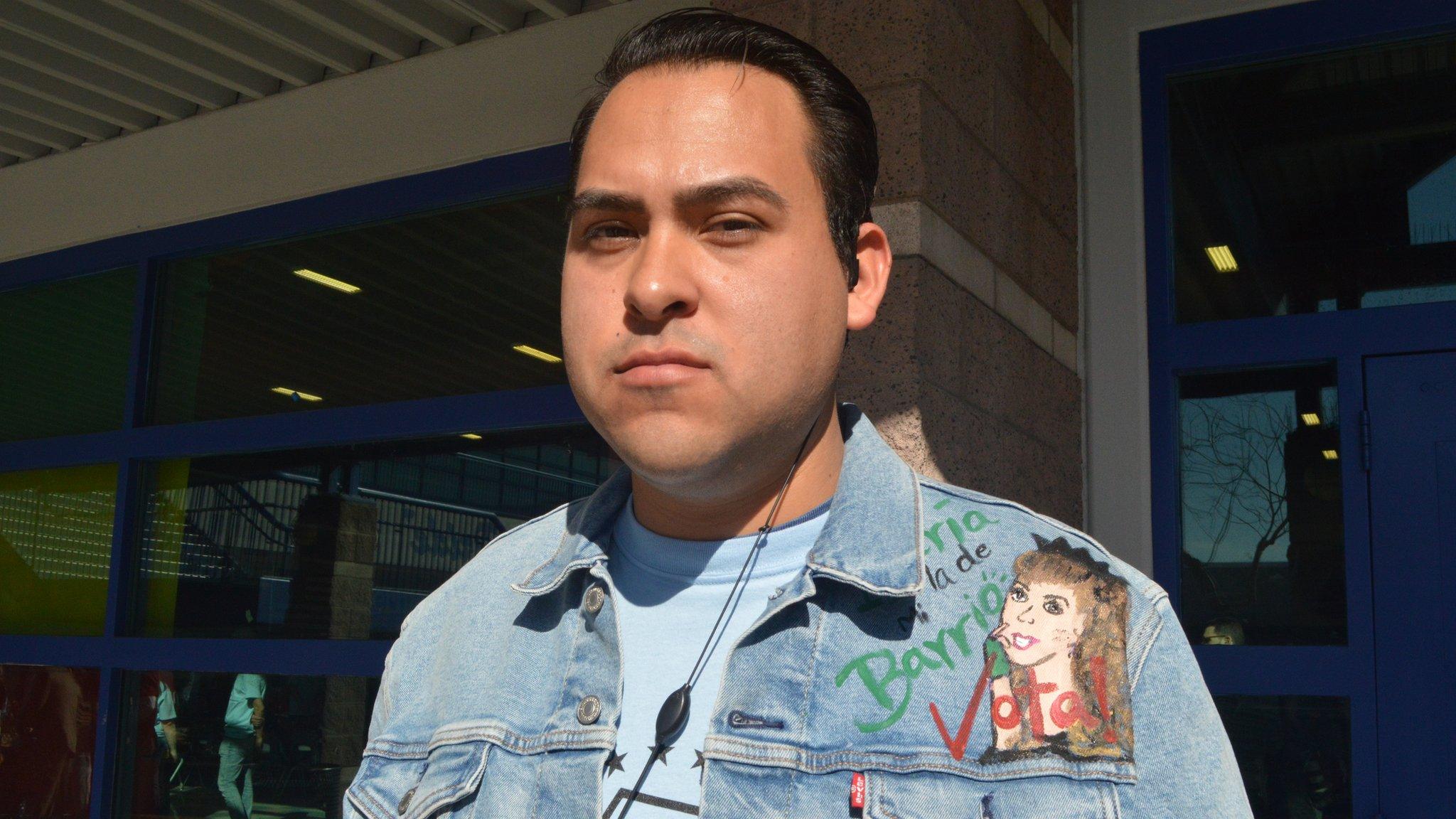
"No other family should have to lose a mother"
In January, a new bill passed by the legislature took effect - requiring all companies with 50 or more employees to provide at least 40 hours of paid leave per year to workers.
The leave can be used for any reason - including sick leave - and activists say this will help workers who would otherwise have to lose a day's wages to see a doctor or look after family members.
Sondra Cosgrove, a history professor at the College of Southern Nevada, and president of the League of Women Voters of Nevada, describes the law as one of the legislature's most important achievements.
There's often an incorrect assumption that "women's issues [just] means abortion and equal pay", Prof Cosgrove says.
She thinks the female majority helped the paid leave bill pass, because the "power that comes from being a legislator" enabled women to negotiate directly with the business community, and there was a recognition that workplaces "needed to be more family friendly".
Meanwhile, Marlene Lockard from the Nevada Women's Lobby describes 2019 as "a banner year in legislation helping women and children", adding: "I think it definitely was because we had the majority."
"Some of these issues, like paid time off, we'd been fighting for for years."
3. Equal pay legislation
According to rights groups, Nevada women earn about $0.86 for every $1 that men make, external.

"The men I supervised were making significantly more money than me" - Brooke Malone
Legislation that took effect in January means that companies who knowingly practise gender pay discrimination can now be subject to fines - and they'll also be required to pay workers for lost wages.
Ms Cannizzaro says equal pay was discussed in the previous 2017 session but it was not until 2019 that there was a wider understanding of why legislation was needed, because most of the female lawmakers had seen real-life examples of the pay gap, she says.
The bill's been welcomed by women in Nevada, including Brooke Malone, 29, who works in the non-profit sector, and Shelley Lyons, 57, a former chef who now works as a driver.
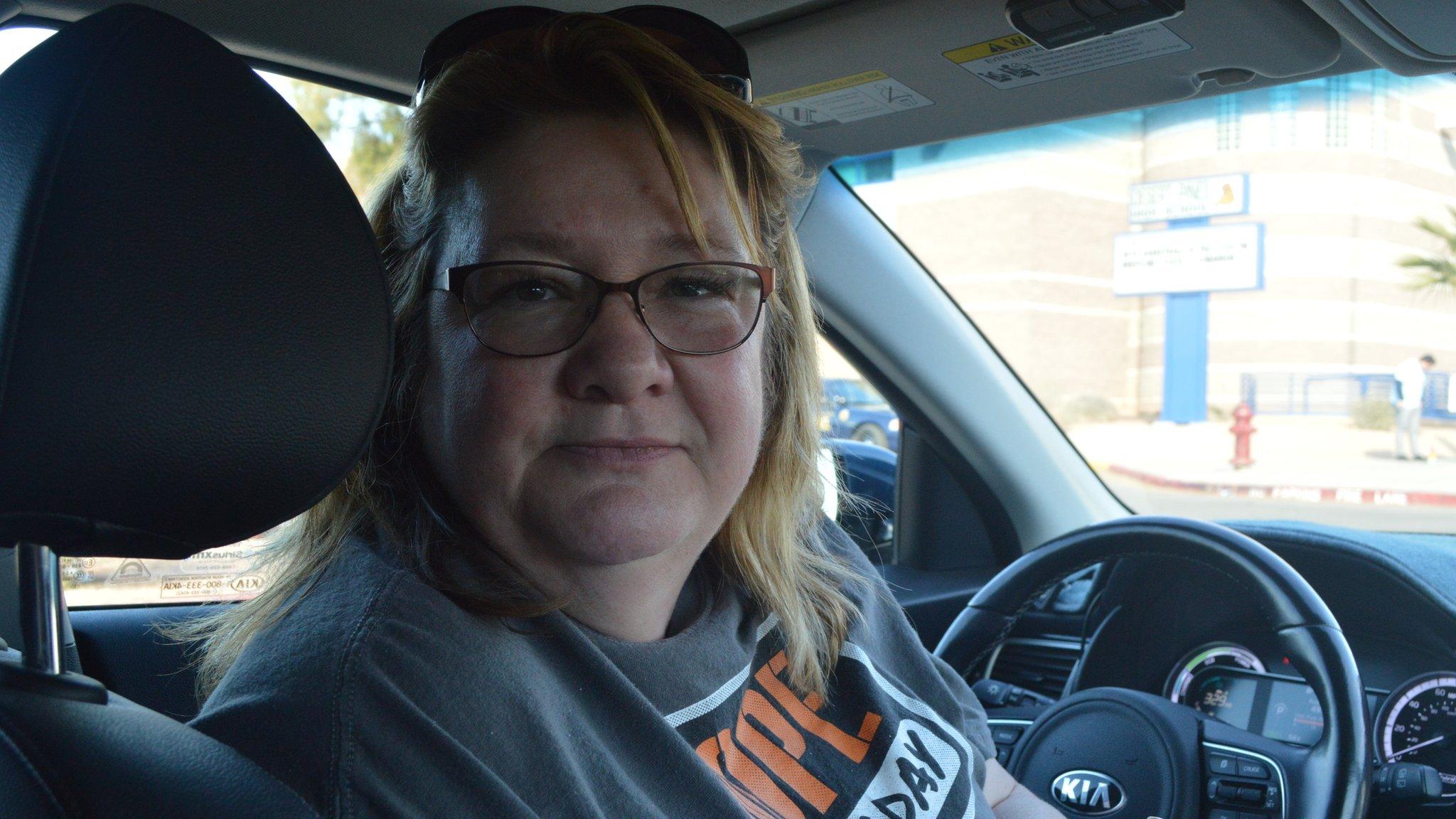
Shelley Lyons says it took having women in power to address the extent of the gender pay gap
Ms Malone remembers running a fundraising team of about 40 people - and finding out through office chatter that the three men she directly supervised made at least a third more than her.
When she raised this with her superiors, one said it was because one of the men had a family - even though Ms Malone was also a parent.
She managed to negotiate a pay rise - but says the experience was still damaging, and she opted to leave the company shortly afterwards.
"I was so scarred I wasn't able to perform," she says. "Knowing that my bosses knew my situation - I had just divorced - and the fact they could have paid me more but didn't, affected my performance."
Meanwhile, Ms Lyon recalls working in a kitchen where all the men, including a man she had hired, got a raise - while she was told she did not qualify because she was pregnant.
"I've been fighting this fight my whole life," she says. "We cannot expect men to know the problems we have - it's time we went out and did it ourselves."
4. The 'Trust Nevada Women Act'
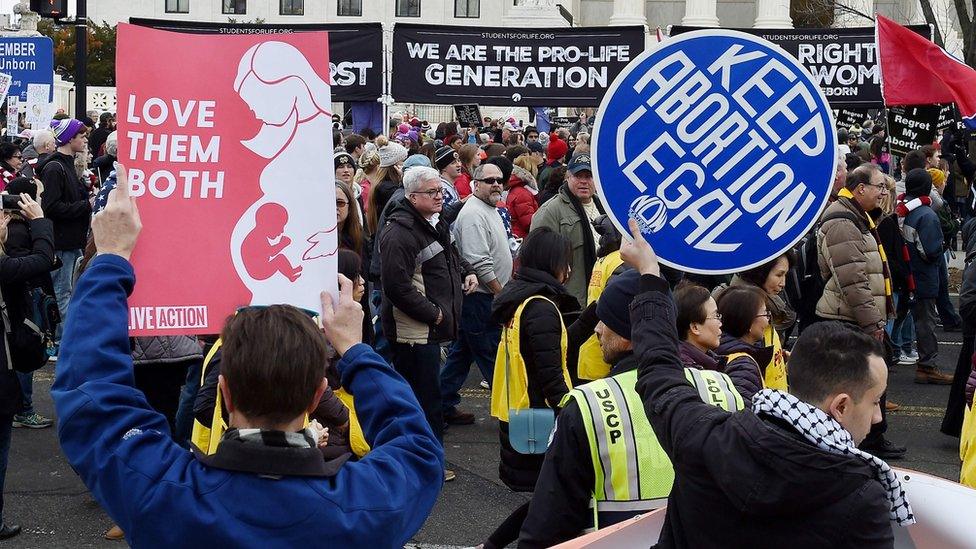
Abortion is one of the most contentious issues in the US
The legislature passed a bill - nicknamed the "Trust Nevada Women Act" - that decriminalised some activities linked to abortion, such as providing miscarriage-inducing drugs.
It also removed the requirement that physicians need to certify a woman's age and marital status, and explain "the physical and emotional implications" of the procedure, before performing an abortion. Instead, the physician simply needs to explain the "discomforts and risks" that could result.
During the bill hearings, different views on gender and rights came to the forefront, but the bill ultimately passed almost completely along party lines, with all but one Democrat voting for it, and all but one Republican.
Nonetheless, it made headlines - as it bucked the national trend during a year when several US states enacted abortion restrictions.
The Guttmacher Institute says a total of 17 states passed anti-abortion laws that year - although most of the laws have been temporarily blocked by federal courts.
Nevada's "bill sent a huge message - it's taking a pretty firm stand, especially when the national political environment is moving the opposite way," says Rebecca Gill, a political science professor at the University of Nevada Las Vegas who focuses on gender and politics.
5. Measures on sexual assault and domestic violence
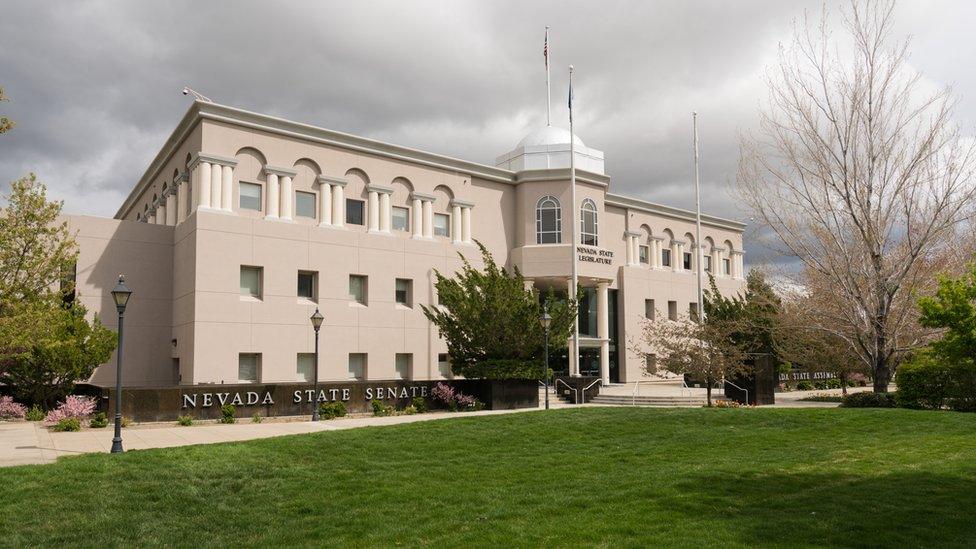
Nevada passed more than 600 bills in its 2019 session
A series of laws related to domestic violence, sexual assault and sex trafficking had bipartisan support, and were passed unanimously.
One bill increased penalties for domestic violence and the battery of pregnant women, while another doubled the length of time a temporary protection order for a victim of domestic violence could last.
A third bill removed the statute of limitations for sexual assault prosecutions, where the identity of the accused person is established by DNA evidence. And the legislature also allocated additional resources to help victims of sex trafficking.
Prof Gill says the fact that Nevada had the US's first female-majority legislature was "very prominent in legislators' minds" - particularly due to the media attention it received. "I think it did offer an opportunity to catch up on the kinds of legislation that, had women been at the table all along, would have been done before."
She also argues that the sheer numbers of female legislators would have helped influence the debate: "When there are a whole bunch of women who can attest to why an issue is important, it gives these types of issues the gravitas they deserve."
There were also more bills looking at sex trafficking and domestic violence, says Senator Julia Ratti.
"With all of those issues, they just start a little further down the line when you have women sitting in the legislature - because they're not just a concept, but something many of us have experienced."
How did we get here?
Female representation in Nevada has been edging upwards for a number of years - the legislature was 39.7% female in 2017, external, and 33% female in 2015.
However the growth so far has only been on the Democratic side, and there hasn't been a female governor yet.
Experts say there have been concerted efforts to recruit and train more female candidates - and that the fact there are term limits in Nevada's legislature means there are more openings.
There's also another factor - Nevada's legislature only meets for four months every other year, which means its representatives are part-time lawmakers who also juggle other jobs.
"It's a lot of work, it's not much pay, and unfortunately these are the kinds of positions that women tend to be overrepresented in," says Prof Gill.
Nonetheless, activists say the female-majority legislature has had a positive impact by inspiring more women to run for office.
For example, the number of women running for judicial seats has already "increased over this cycle", says Prof Cosgrove.
Judicial filing reports show that more than half of the candidates in Nevada's largest county, Clark County, are female, while women make up more than 40% of candidates in the second-largest county, Washoe.
Electra Skrzydlewski from Emerge Nevada, a training programme for Democratic women who are running for office, says applications have increased.
"This renewed sense of duty to get involved is not going to go anywhere," says Ms Skrzydlewski. "Women are taking stock of how they can shape the future."
- Published23 May 2019
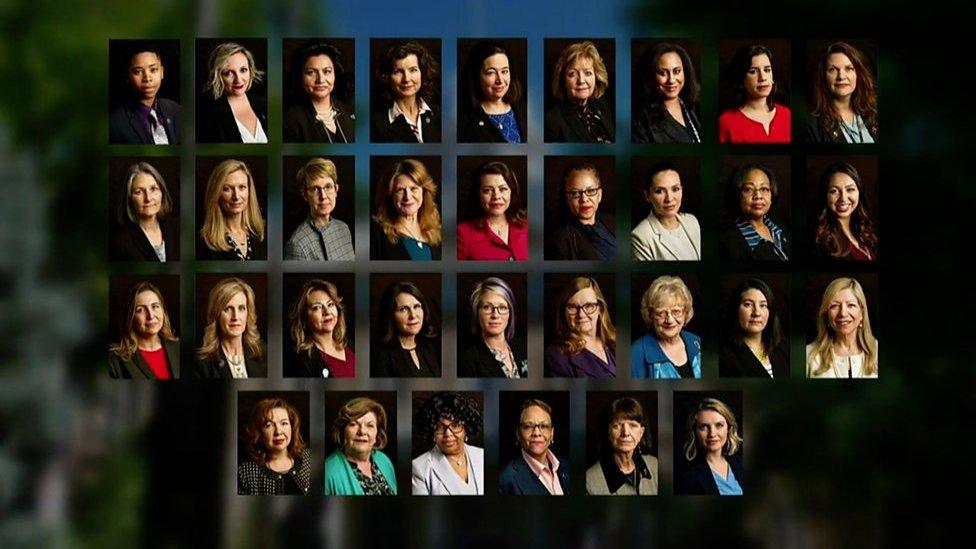
- Published11 September 2019
